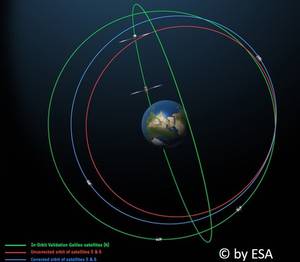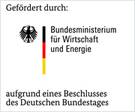In this project, we use the data obtained by the errant GALILEO navigation satellites GSAT-0201 and GSAT-0202 for a precision test of relativity theory. In August 2014 the two satellites GSAT-0201 and GSAT-0202 have accidentally been injected into an orbit of high eccentricity. Therefore, the onboard atomic clocks are now subject to a daily modulation of the gravitational potential, with a height difference of approximately 8700 km between apogaeum and perigaeum. This provides us with an excellent opportunity to determine the modulated gravitational redshift these clocks experience and to perform an accurate test of this fundamental prediction of general relativity.
RELAGAL / GREAT

Related publication
S. Herrmann et al.: Test of the Gravitational Redshift with Galileo Satellites in an Eccentric Orbit,
Phys. Rev. Lett. 121, 231102 (2018)
Contact
J. Scheumann
Funding
This work is supported both by ESA in the framework of the GREAT project (GNSS General RElATivity Experiment) with support from the ESOC Navigation support office as well as by by the German Space Agency DLR in the project RELAGAL (RElativistic experiments with GALileo satellites) with funds provided by the Federal Ministry for Economic Affairs and Energy (BMWi) under grant number 50WM1547.




 "
"